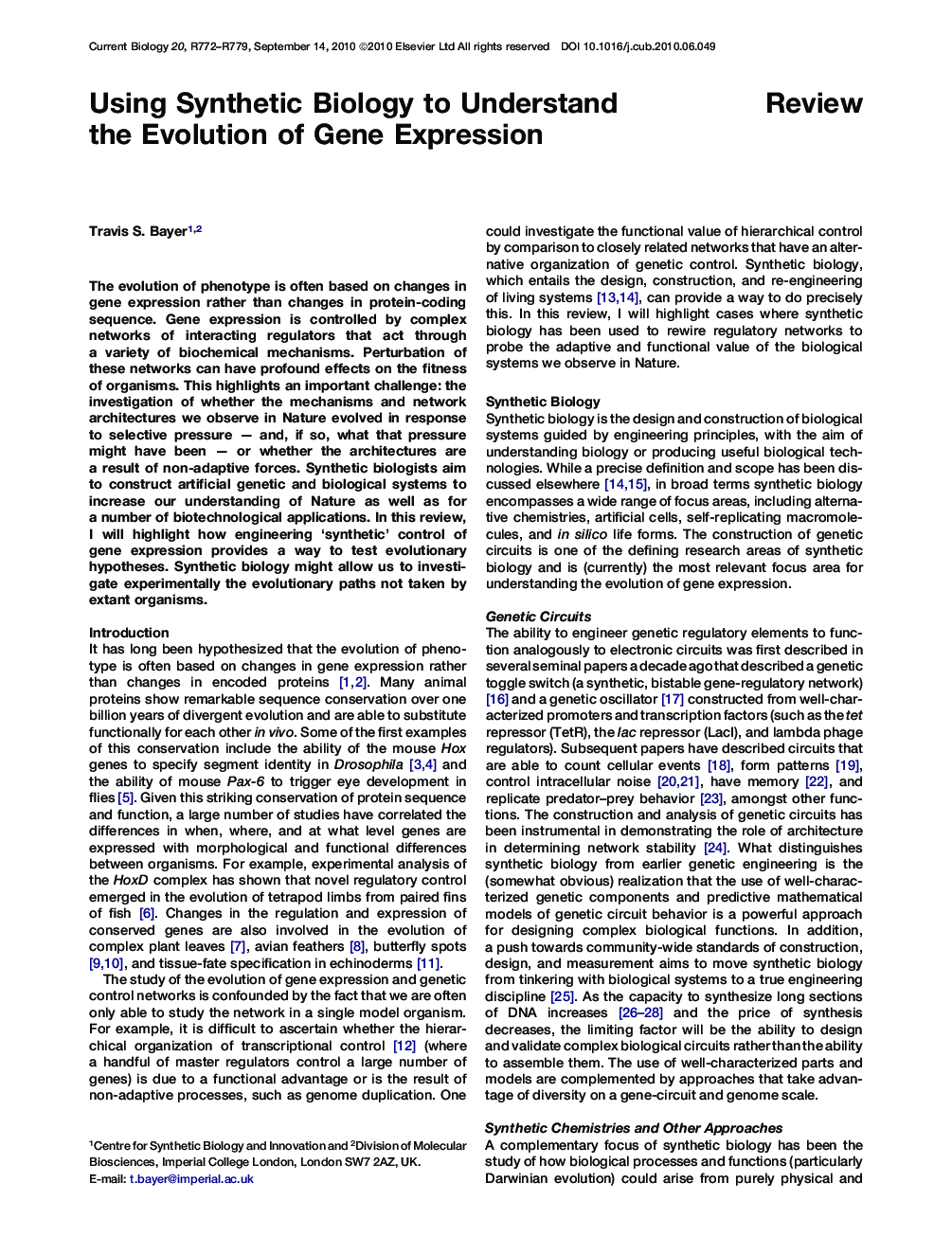| Article ID | Journal | Published Year | Pages | File Type |
|---|---|---|---|---|
| 2043423 | Current Biology | 2010 | 8 Pages |
The evolution of phenotype is often based on changes in gene expression rather than changes in protein-coding sequence. Gene expression is controlled by complex networks of interacting regulators that act through a variety of biochemical mechanisms. Perturbation of these networks can have profound effects on the fitness of organisms. This highlights an important challenge: the investigation of whether the mechanisms and network architectures we observe in Nature evolved in response to selective pressure — and, if so, what that pressure might have been — or whether the architectures are a result of non-adaptive forces. Synthetic biologists aim to construct artificial genetic and biological systems to increase our understanding of Nature as well as for a number of biotechnological applications. In this review, I will highlight how engineering ‘synthetic’ control of gene expression provides a way to test evolutionary hypotheses. Synthetic biology might allow us to investigate experimentally the evolutionary paths not taken by extant organisms.
